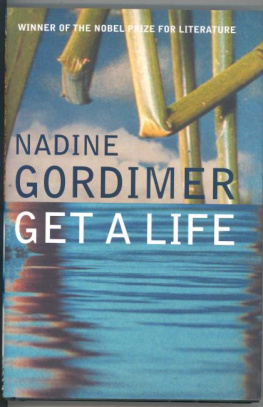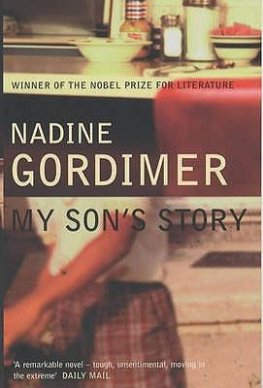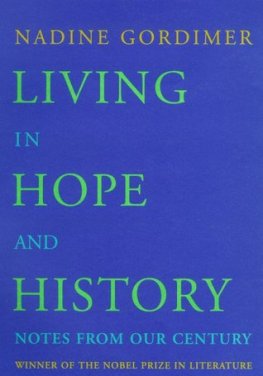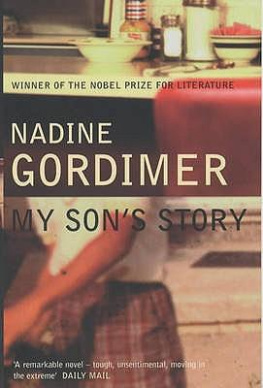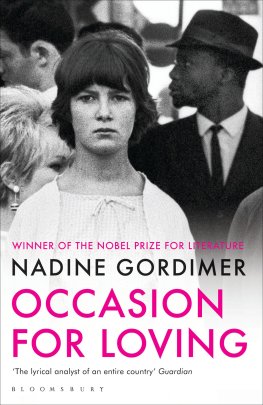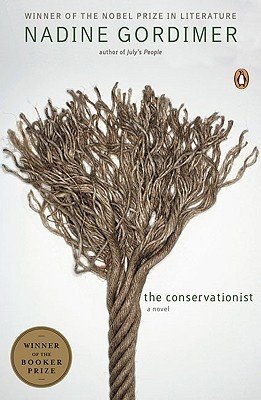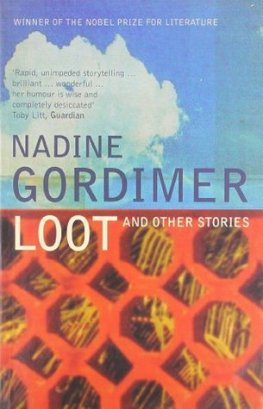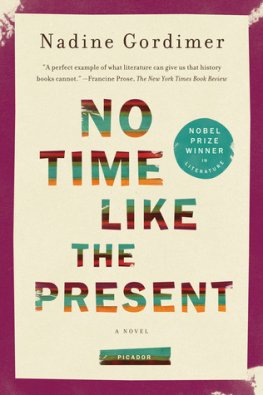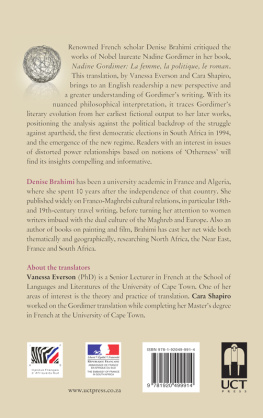Get A Life
Nadine Gordimer
Get a Life begins with Paul Bannerman, a South African ecologist, being treated for thyroid cancer with radioactive iodine. To spare his wife and child any peril from the radioactivity, he returns to his parents' home to recuperate. He's returned to his childhood state, being cared for by his mother, a civil rights lawyer, and the black housekeeper who's been with the family his whole life. Paul's wife, an advertising executive, realizes that her clients are facilitating the foreign corporations who want to take advantage of liberal land use laws for their own interests. Paul's illness forces them all the re-evaluate both their lives and the new challenges facing their country. Nadine Gordimer's has received mostly positive reviews with the Philadelphia Inquirer saying, "At first whiff, Get a Life feels an odd title for this novel. But as the action progresses, and Gordimer masterfully grinds her yarn to a quivering conclusion, no answers have been provided, and the moniker she has given this provocative book seems perfect."
Nadine Gordimer Get A Life
O what authority gives
Existence its surprise?
W.H.Auden, "The Sea and the Mirror"
i / Child's Play
Only the street-sweeper swishing his broom to collect fallen leaves from the gutter.
The neighbours might have seen, but in the middle of a weekday morning everyone would be out at work or away for other daily-life reasons.
She was there, at the parents' driveway gate as he arrived, able to smile for him, and quickly sense the signal for them to laugh at, accept the strangely absurd situation (only temporary) that they could not hug one another. A foregone hug is less emotional than a foregone embrace. Everything is ordinary. The sweeper passes pushing the summer's end before him.
Radiant.
Literally radiant. But not giving off light as saints are shown with a halo. He radiates unseen danger to others from a destructive substance that has been directed to counter what was destroying him. Had him by the throat. Cancer of the thyroid gland. In hospital he was kept in isolation. Even that of silence; he had no voice for a while, mute. Vocal cords affected. He remains, he will be still, out of his control, exposing others and objects to what he emanates, whomever and whatever he touches.
Everything must be ordinary.
Calling from one car window to the other: Has she remembered his laptop? Some cassettes? His Adidas? The book on the behaviour of relocated elephants he was in the middle of reading when he went back to hospital? Berenice Benni why do parents burden their children with fancy names has packed a bag for him. She wept while she made decisions on his behalf, put this in, take that out. But she not only remembered; familiarity knew what he would need, miss. In one of the books he will find she has slipped a photograph of herself he liked particularly, he'd taken before their love affair turned into marriage. There's a snap of the boy as a baby.
His mother fetched him from the hospital. He opened a door of the rear seat of the car, to sit in there, right from the start he must begin to follow a certain conduct of himself, make it a habit for the time being, but his mother is like him (if that's not a reverse order of inherited characteristics), she has decided on her own code of conduct in response to the threat he represents. She leans to open the door of the passenger seat beside her and pats it authoritatively.
He has a wife and child.
Whose life, whose risk is worth less than these?
Parents are responsible for bringing into the world their progeniture whether deliberately or carelessly and theirs is an unwritten covenant that the life of the child, and by descent the child's child, is to be valued above that of the original progenitors.
So Paul that's him, the son he has come home oh differently, for the time being, yes to the old home, that of his parents.
Lyndsay and Adrian are not old. The ladder of ageing has extended since medical science, sensible exercise, healthy diet have enabled people to linger longer and younger before ascending to disappear in the mystery at the top. ('Passing away' is the euphemism, but to where?) Unthinkable that the son is preceding, ahead of them, up there. His father is about to retire at a vigorous sixty-five from managing directorship of an agricultural vehicle and equipment plant. His mother, fifty-nine looking forty-nine, a longtime natural beauty with no wish for face-lifts, is considering whether or not she should leave her partnership in a legal practice and join her other partner in this new phase of existence.
The dog jumps and paws at him, sniffs the cold hospital pungency of his bulging holdall and the delivered suitcase with what his wife anticipated his needs might be here, in this phase of his existence. Which room? It is not his old room, it's his sister's that has been turned into a study where his father will follow whatever interests he's supposed to have in readiness for retirement. This sister and brother born only twelve months apart due to excessive youthful passion or a mistaken reliance on the contraceptive efficacy of breastfeeding Lyndsay still laughs at her ignorance and the opportunism of quick breeding! There are two other sisters, better biologically spaced. He has no brother.
He's unique.
The pestilent one, the leper. The new leper, that's it, how he thinks of himself, sardonically flip. His resort comes probably from the advertising fraternity/sorority's facility with turn of phrase he's picked up in the company of Benni's colleagues.
Paul Bannerman is an ecologist qualified academically at universities and institutions in the USA, England, and by experience in the forests, deserts, and savannahs of West Africa and South America. He has a post with a foundation for conservation and environmental control, in this country of Africa in which he was born; an employee presently on extended leave for health reasons. Benni/Berenice is a copywriter, advanced to management in one of the international advertising companies whose campaigns operate all over the world and whose name is globally familiar as a pop star's, keeping its form without need for translation, part of every language's vocabulary. She earns more than he does, of course, but that's no matter for imbalance in the mating since the role-casting of male as the provider is outdated, as the price of feminist freedom. It is probably the contrast in the context and different practices of their working lives that keeps for them a sense of the unknown, even sexually, that usually gets lost in habit after a few years of marriage. Familiarity; if she knew him well enough to anticipate his common needs learnt in five years of intimacy, this did not mean his comprehension of what the world is, how it functions, his intuitions, were not different from hers. Always something to talk about, a frustration, an achievement to trade, always the element of the stranger, each perceiving something, with the third eye, in the orbit of the other.
When the verdict came from the specialist oncologist through the general practitioner who was of their generation and in their group of friends, she was the one who answered the early morning call. Every day he left their bed first, accustomed to early rising on fieldwork. He came from the bathroom and found her pressed back against the pillows with tears leaking down her cheeks as if something inside her had suddenly given way. He stopped at the open door. Before he could speak she told him. There is no looking for the delay of an appropriate time for such what? News, information.
It's cancer. The thyroid. Bad. Jonathan couldn't make it sound anything else. The dissolve ran down to her lips, trembled on her chin.
He stood there. His mouth stirred, as if about to speak. Stood, alone. Such news belongs only to the one from whose body the message has come. Then he closed the mouth in a tight line, distortion of a smile in some attempt at recognition of her presence.
Next page
